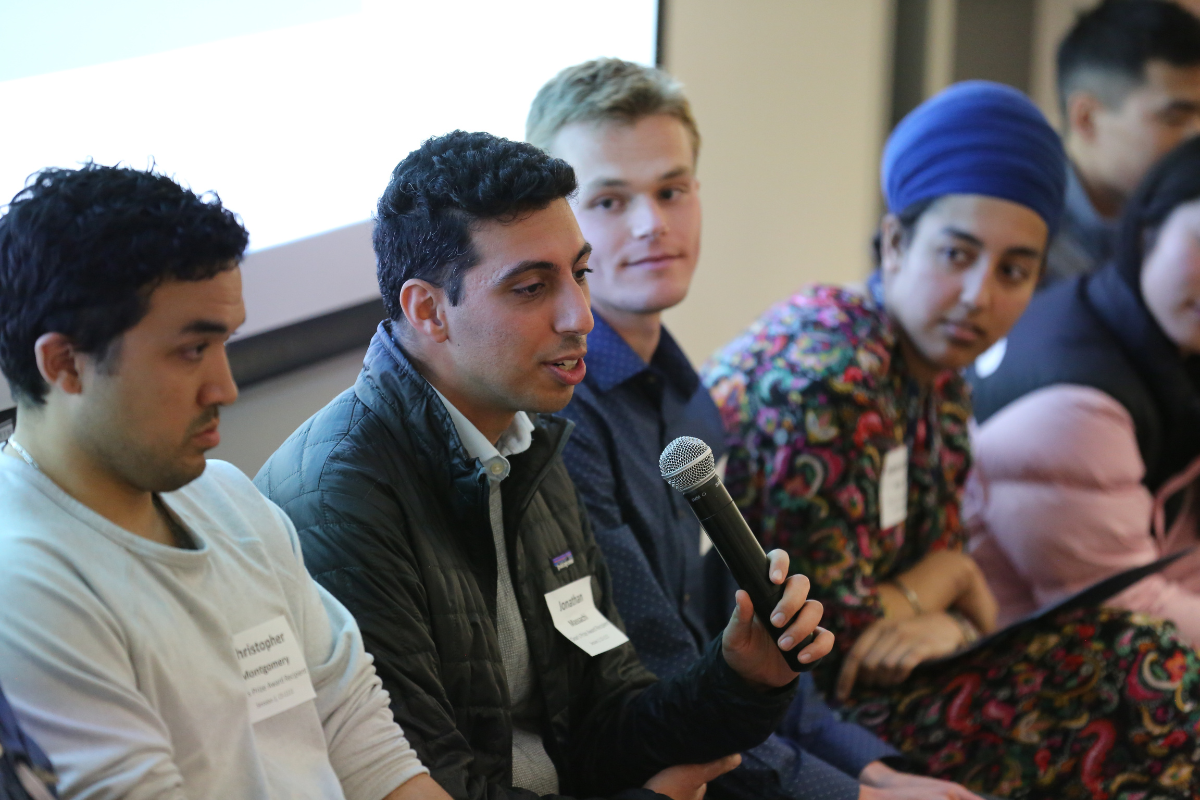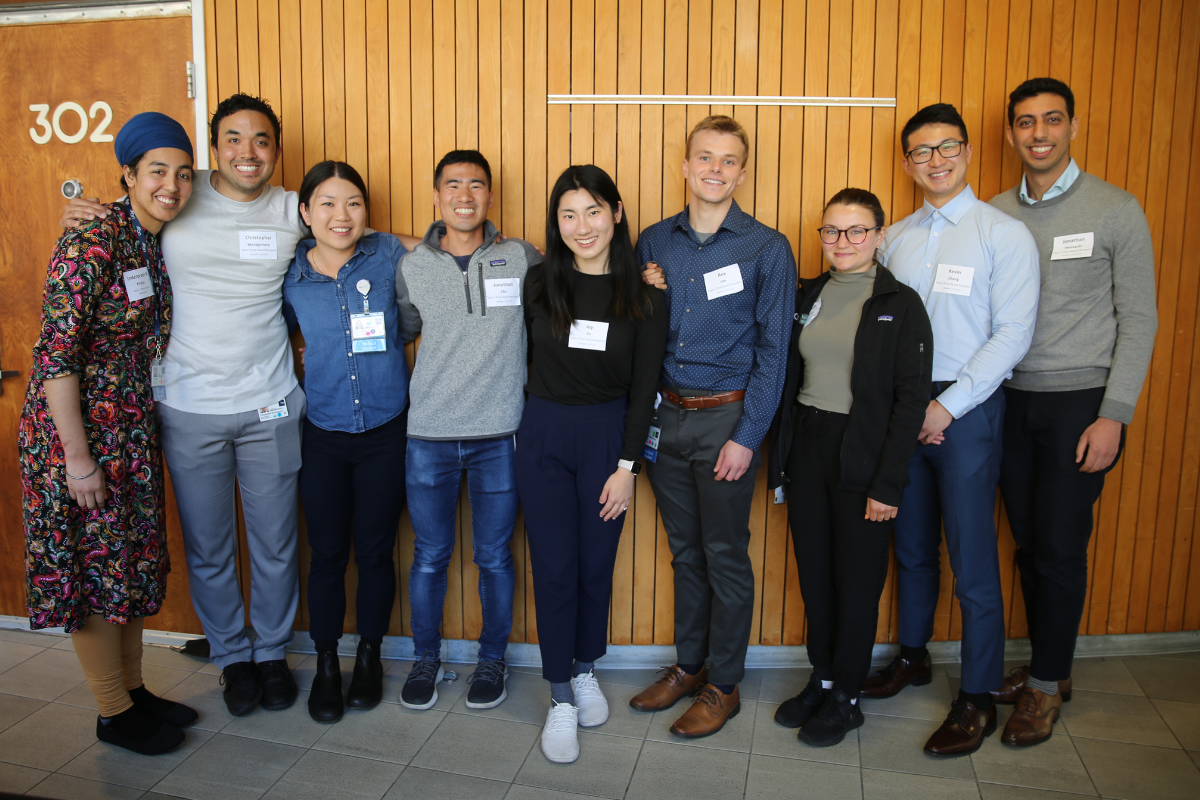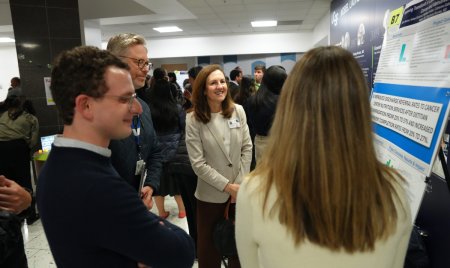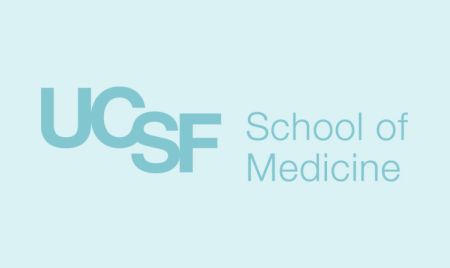Insightful Inquiry from the Class of 2023: Reflections on this Year’s Inquiry Symposium

One of the core tenets of the UCSF School of Medicine’s Bridges Curriculum is the pursuit of knowledge through inquiry. To support this, the school has fostered a medical education curriculum rich with opportunity for scientific exploration. As a component of the final Career Launch phase of the Bridges Curriculum, students are provided 12-20 weeks of protected time to complete a mentored “Deep Explore” project with their choice of principal investigator, in their field of study. Some students will go beyond 20 weeks and pursue a funded research gap year through UCSF or outside institutions. For fourth-year students, the spring Inquiry Symposium is a time to showcase their research efforts via oral and poster presentations of their Deep Explore and Yearlong project findings.
This year marked the fourth Inquiry Symposium, and the first to be held in-person. A joyful energy defined the occasion, as students were reunited with friends and classmates, after returning from the far corners of the UCSF health care system or even the country in pursuit of sub-internships. Inquiry Curriculum Director, Rita Redberg, MD, MS, greeted the crowd and reviewed the schedule for the day. The crowd cheered when Dr. Redberg introduced student presenter, Chris Montgomery.
Reflecting on the Symposium, Dr. Redberg said, “What a fabulous day! We were so impressed and excited to hear all the incredible research projects our students were able to accomplish, ranging from basic science to clinical and translational work and medical humanities projects. What a talented class. It was a privilege to listen to these presentations.” She continued, “I came away reminded of the importance of the personal connection and respect for our patients as people.”
Each year, ten students are recognized for their scholarly work; this year six students were awarded the Dean’s Prize in Yearlong Research and four were selected to receive the Dean’s Prize in Deep Explore. The Dean’s Prizes are biannual awards given on the basis of outstanding scholarship and research demonstrated during Summer Explore and long-term research. Finalists are selected based on submission of a one page abstract, letter of nomination, and successful presentation to the faculty review committee.
Of these student awardees, one is elected by their peers to represent the graduating class as the Student’s Choice Research Presentation. This year, Christopher Montgomery was chosen for the project, “Humanistic Charting: Standardization of a Patient’s Person into the EMR (Electronic Medical Record), a 3-phase Study.” Chris’s project entailed collaboration with several NYC emergency departments to develop a tool that would better integrate a patient’s personhood into their electronic medical record, and then subsequent evaluation of this tool for its effect on patient satisfaction and medical decision making. In highlighting the need for such endeavors, Chris made an impassioned argument for the consistent inclusion of patient voice in the electronic medical record. He asked the audience to consider, “What do you want a provider to know about you?”
Christopher Montgomery, MS4
Connecting with Chris after the symposium to gain greater insight into the significance of student-led inquiry and the learning opportunities yearlong projects offer students, he said:
“My personal mantra was once rooted in the dichotomy of heart and mind, idealistic at heart, and realistic in mind. That was until one of my many mentors told me no, never cease to be an idealist, not just in just your heart, but also in your mind. The world as we know it and the systems that operate within it are vestiges of the past, your innovative thinking and relentless effort are catalysts for the future.
I have lost all hope in trying to stepwise plan out my future, because of all the brilliant people and minds here at UCSF that continuously alter its trajectory. Witnessing the remarkable accomplishments that students—yes, students—have achieved here, is a testament to the opportunity, mentorship, and the powerful program that has been created. To everyone involved in this dynamic journey of a UCSF medical student, my heartfelt thanks!”
Also recognized at this year’s Symposium were 23 faculty mentors who supported student researchers through their methodologic expertise, insight into the field, and successful academic record. One mentor award recipient, and the project mentor of Deborah Yip, a Dean’s Prize Deep Explore awardee, Erica Brode, MD, MPH, Associate Professor of Family and Community Medicine, emphasized the joy developing a mentor-mentee relationship can bring. Dr. Brode said, “Serving as a Deep Explore mentor was a very rewarding experience. I learned so much from the student I worked with and enjoyed our longitudinal relationship. Her time and dedication will have a lasting impact on our clerkship curriculum and through her work we have connected with a national network of other institutions making similar changes. Working with Deep Explore was truly a gift.”
In addition to award recognitions, Dean’s Prize winners sat for a panel discussion facilitated by Daniel Lowenstein, MD, Professor of Neurology, to share reflections on student research, mentorship, and the future of medical inquiry. In his introductory remarks, Dr. Lowenstein called on attendees to pursue research to advance knowledge and improve the health outcomes of ourselves, each other, and our communities.
Chris Stewart, MD, Professor of Pediatrics and Co-Chair for the Inquiry Symposium, remarked that the student panel “revealed a theme that resonates with everything I do. We need to do better at hearing and seeing our patients. To paraphrase a saying from Trauma Informed Care, the message was that we need to do better at addressing not only “what is wrong with you? (disease)”, but as, or more importantly, “what happened to get you here?”
Dr. Stewart added, “It was inspiring to see the contributions of our students to help answer both these questions, and particularly to help us all be better at seeing our clients as people and not just patients.”
Following the panel, audience members attended the symposium’s poster session. Nearly every graduating student spoke on the merits and results of their individual Deep Explore projects, with themes ranging from basic science and medical informatics to quality improvement and social and behavioral sciences. Presenters spoke in rotation and guests had the option to move from room to room to sit in, listen, and ask questions.
Robert Rodriguez, MD, Professor of Emergency Medicine and Co-Chair for the Inquiry Symposium “[was] amazed by the depth and passion of the students’ research. Multiple faculty mentors commented on how proud they were of their mentees’ efforts.”
This year’s Inquiry Symposium marked the first Medical Humanities Coffee House for creative arts. Featured works included pieces of poetry, narratives, and short fiction, all created by fourth-year medical students.
The class of 2023 is ready to find success in their next chapters, with many surely to continue to engage in groundbreaking and insightful research, providing more meaningful contributions to medical inquiry in the future to come.
Student writer Amanda León is looking forward to embarking on her own Inquiry-funded research year. Amanda said, “I will be working on a Child and Adolescent Psychiatry project – and looking forward to presenting at the Inquiry Symposium this time next year!”

Dean’s Prize in Yearlong Research Finalists:
Isabella Auchus
The performance of 10 fingertip pulse oximeters during hypoxemia in healthy human subjects with varied, quantified skin pigment
Mentor: Michael Lipnick, MD, Associate Professor of Anesthesia
Kevin Chang
Modulation of the PPARg pathway to augment NECTIN4 expression and sensitivity to NECTIN4-targeting therapies in bladder cancer
Mentor: Jonathan Chou, MD, PhD, Assistant Professor of Medicine
Aheli Chattopadhyay
A population-based cohort study of sodium consumption and psoriasis
Mentor: Katrina Abuabara, MD, Associate Professor of Dermatology
Joy Jin
Defining immune cell trajectories between blood and skin in psoriasis
Mentor: Wilson Liao, MD, Professor of Dermatology
Inderpreet K. Khalsa
A Landscape of Disparities Experienced by Deaf or Hard-of-Hearing (DHH) Children: a Multi-Level & Multi-Domain Analysis Spanning a Decade
Mentor: Dylan Chan, MD, PhD, Associate Professor of Otolaryngology
Christopher Montgomery
The Humanistic Charting Initiative: Standardization of a Patient’s Person into the EMR
Mentor: Christopher Peabody, MD, MPH, Associate Professor of Emergency Medicine
Dean’s Prize in Deep Explore Finalists:
Jonathan Chu
Adverse childhood experiences and binge-eating disorder in early adolescents
Mentor: Jason Nagata, MD, Assistant Professor, Pediatrics
Rex Lee
Therapeutic implications of transcriptomics in head and neck cancer patient-derived xenografts
Mentor: Jennifer Grandis, MD, Professor of Ophthalmology
Jonathan Massachi
MRI simulation for breast cancer radiotherapy planning of poorly defined postoperative tumor cavities
Mentor: Lisa Singer, MD, PhD, Assistant Professor of Radiation Oncology
Deborah Yip
The Power of the Patient Voice: A Community-Engaged Approach to Carceral Health Curricula Development
Mentor: Erica Brode, MD, MPH, Associate Professor, Family and Community Medicine









